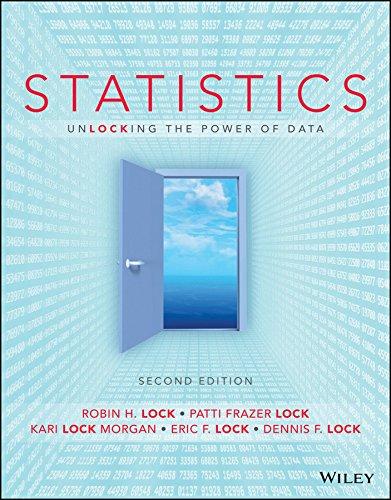Researchers continue to find evidence that brains of adolescents behave quite differently than either brains of adults
Question:
Researchers continue to find evidence that brains of adolescents behave quite differently than either brains of adults or brains of children. In particular, adolescents seem to hold on more strongly to fear associations than either children or adults, suggesting that frightening connections made during the teen years are particularly hard to unlearn. In one study, participants first learned to associate fear with a particular sound. In the second part of the study, participants heard the sound without the fear-causing mechanism, and their ability to "unlearn" the connection was measured. A physiological measure of fear was used, and larger numbers indicate less fear. We are estimating the difference in mean response between adults and teenagers. The mean response for adults in the study was 0.225 and the mean response for teenagers in the study was 0.059. We are told that the standard error of the estimate is 0.091.
(a) Give notation for the quantity being estimated.
(b) Give notation for the quantity that gives the best estimate, and give its value.
(c) Give a \(95 \%\) confidence interval for the quantity being estimated.
(d) Is this an experiment or an observational study?
Step by Step Answer:

Statistics, Enhanced Unlocking The Power Of Data
ISBN: 9781119308843
2nd Edition
Authors: Robin H Lock, Patti Frazer Lock, Kari Lock Morgan, Eric F Lock, Dennis F Lock





